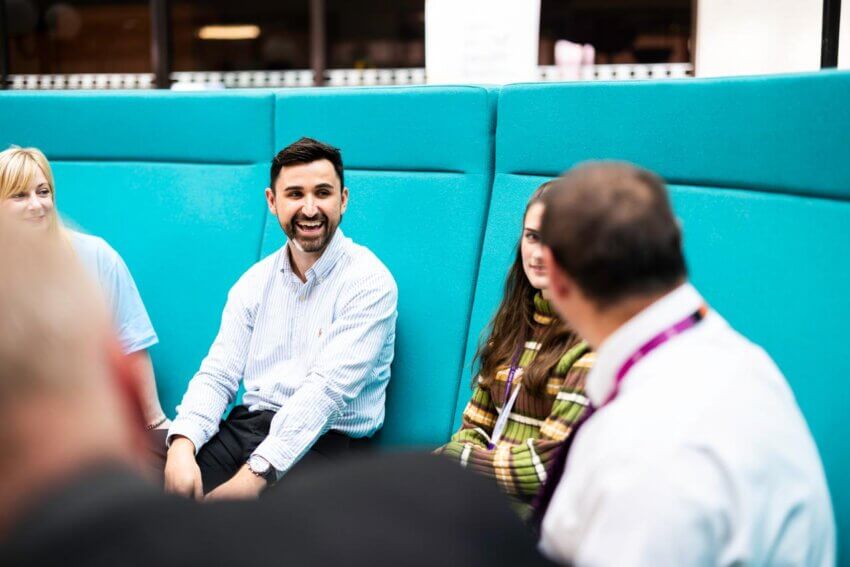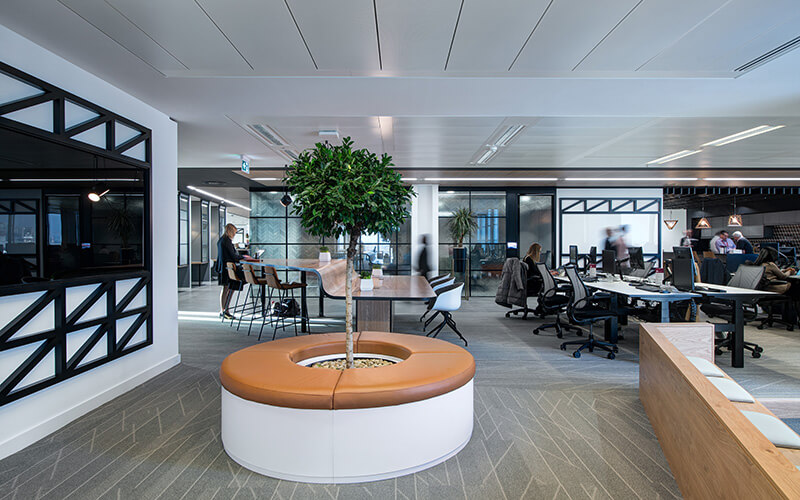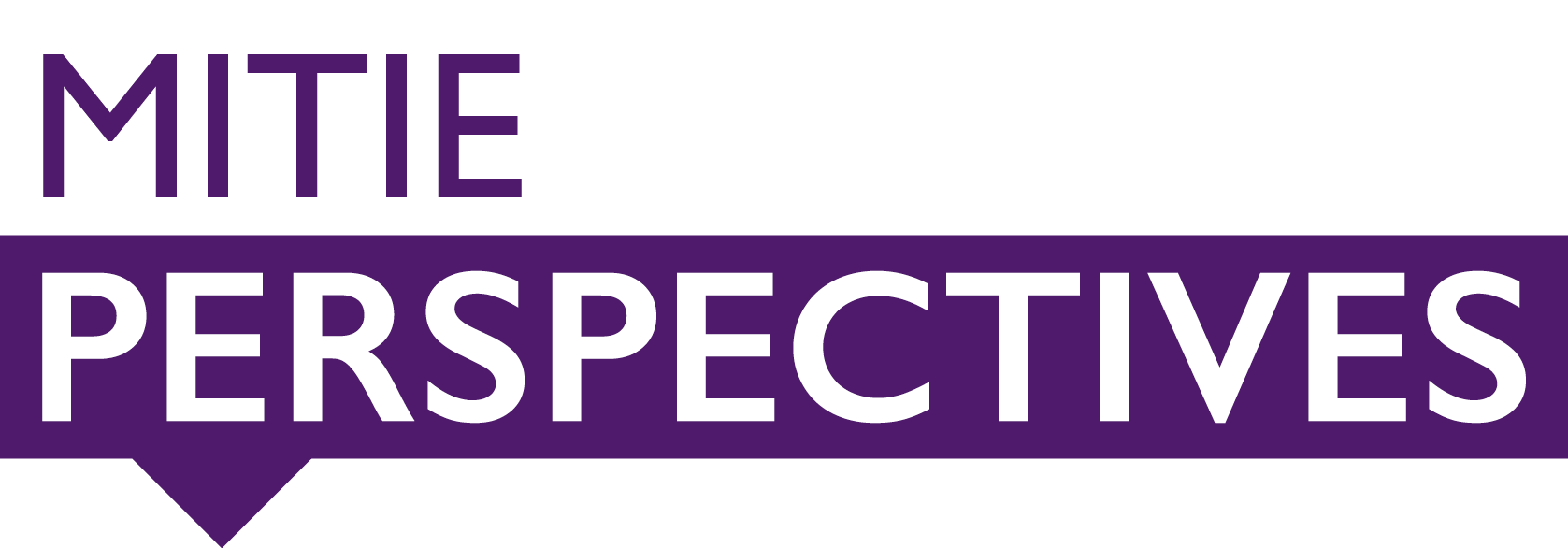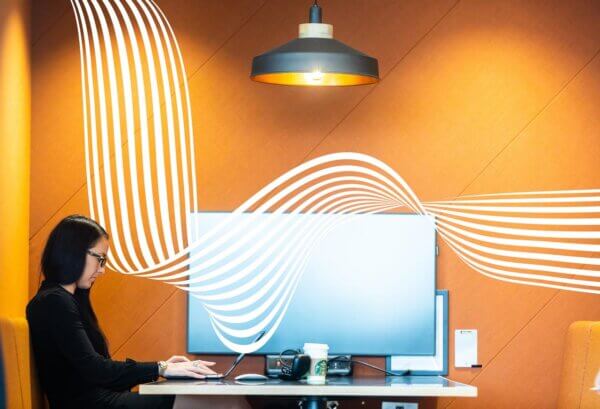Why aren’t workplaces working?

Many workplaces are falling short of supporting employees effectively – and it’s time to take action.
So believes Mitie’s MD for Smart Workplaces, Simi Gandhi-Whitaker.
For this Perspectives article, Simi digs into the data and detail of our recently released report, The Productivity Reset, which features research of over 3,000 employees across the UK.
Through her analysis, Simi shines a light on how to respond to widespread workplace challenges.
New research from Mitie reveals a great irony: workplaces and productivity don’t always go hand-in-hand.
In fact, The Productivity Reset demonstrates that due to shortcomings in the workplace, UK employers suffer an estimated £485.2m in lost hours every week, which equates to a potential GDP drain of £71.47bn a year.
As a strategic workplace specialist, I have explored the report for insights on how to improve our approach to the spaces we work in today.
Toughest at the top
The first thing that jumped out is that colleagues in senior roles are worst affected by workplace-related unproductive time.
We found 60% of senior management and 63% of those in executive leadership positions say inefficiencies in the workplace are eating up their days. In contrast, the research shows junior colleagues aren’t affected to the same extent.
This is surprising, given that people traditionally reach senior roles after years of experience. Why then is this typically older cohort attending the office only to face the frustration of being unproductive? In addition, our research shows those aged 55+ are second most-likely to be fully in-person at their place of work – 60% compared to 70% of 18 to 24-year-olds. What is pulling these groups into the workplace? Could it be that they are not ‘feeling’ unproductive and conflate turning up for work with productivity? Or is it that they are so used to putting on the laptop in the evening to complete work during personal time that they overlook the role of an inefficient workplace in having to do so?
Whatever the reasons are, this point illustrates why organisations need to be prepared to accommodate the needs of an increasingly inter-generational workforce. The onus is on employers to understand the subtleties of what’s going on in their spaces and how to respond to the needs and challenges of a wide range of workers.
As I recommend in the report: “Where we see real gains is when workplace strategy is rooted in their purpose. By elevating the colleague voice, aligning space with intent and using data to connect people and place, organisations can unlock environments that convert lost time into meaningful productivity.”

Avoid the workplace disconnect
The report also brings to light the experience of younger generations in the workplace. This is something which clearly needs to be addressed.
Workers aged 18 – 24 are significantly more likely to work in-person compared to the average (70% vs 55%). In fact, our research shows 76% of 18 – 24-year-olds believe in-person interaction to be essential or very important. This is because more junior workers prioritise face-to-face interaction to learn, build confidence and form professional relationships that will benefit their careers. As many will have recently left education, where face-to-face time is more usual, it stands to reason they continue to value it in the workplace. Backing this up, our research shows that as the age of each cohort increases, there is a corresponding decline in the perceived importance of in-person interactions for productivity and performance:
Age 18 – 24: 75%
Age 25 – 34: 73%
Age 35 – 44: 67%
Age 45 – 54: 63%
Age 55+: 58%
Support L&D
However, in every measure of workplace environment satisfaction, the youngest cohort (18 -24) gave the survey’s lowest ratings. Organisations must address this disconnect of those who are least satisfied with the environment being most likely to be present.
Our research shows that across all age-groups, 18 – 34-year-olds place the greatest focus on a ‘Comfortable and well-designed physical workspace’.
They expect their place of work to support learning and development and to offer the right technology and tools for their jobs.
Organisations that wish to future-proof their workforce by attracting and retaining talent should take action to accommodate the needs of these workers.
Focus on neurodiversity
My third and final takeaway relates to neurodiversity.
Mitie’s research found that a quarter of 18 – 24-year-olds report a neurodivergent condition – well above the 3% of those aged 55 and over, and also above the 10% average.
I find it worrying that nearly one in five in this cohort (19%) disagree that they look forward to going to their place of work. When they are in work, 12% disagree their workplace is designed to help them be productive, compared to the 6% 18 – 24-year-old average. In addition, across all age groups, employees with a neurodivergent condition report losing 85 minutes to unproductive tasks each day, which is 17 minutes more than the average employee.
As more people reporting a neurodiverse condition enter the workforce, it’s important for organisations to respond with spaces that accommodate their needs. This will address the disparity in time lost to being unproductive. As I said in the report: “Designing for inclusivity isn’t just the right thing to do, it creates a strategic advantage.”

Act now
It is ironic that today’s workplaces aren’t supporting the way we work today. But we can change things for the better.
Anecdotally, I believe corporate silos are the main reason for workplace failings. The CEO, CFO and CPO are all critical for shaping an effective workplace strategy. These functions should work hand-in-hand to drive each organisation’s approach, using data to make informed decisions. Where data is lacking, it’s worth considering solutions such as Mitie’s Sphere, a WELL-accredited workplace effectiveness tool that helps organisations understand how colleagues are working and how they can be supported better in the workplace.
The average person spends around 90,000 hours of their life at work – I hope The Productivity Reset is the catalyst needed to make every one of those hours productive.

Do you agree with Helen? Tell us what you think by emailing:
Read next

Are you ready for the workplace reckoning?
Post-Covid, the workplace, as we know it, is undergoing profound transformation. While many organisations are making changes to keep up, few are preparing for the scale and pace of the seismic shift on the…
Cleaner air, safer workplaces
The pandemic has brought to the forefront just how important fresh air circulation and a healthy environment is to well-being and performance in the workplace. Good ventilation and the flow of fresh air reduces…
Connected Workspace in action
Showcasing Mitie’s Connected Workspace at The Shard, our feature video demonstrates just some of the benefits of Connected Workspace in office environments.
 Skip to content
Skip to content
